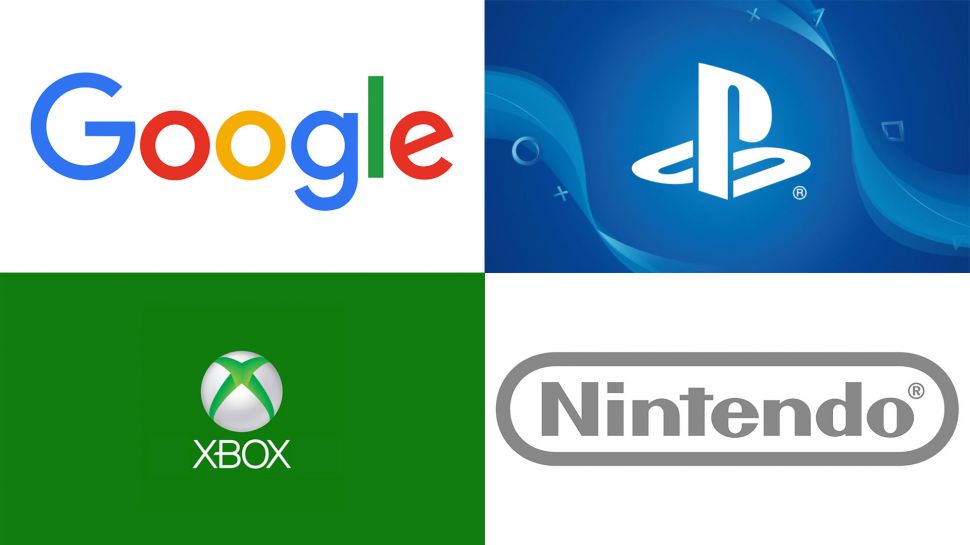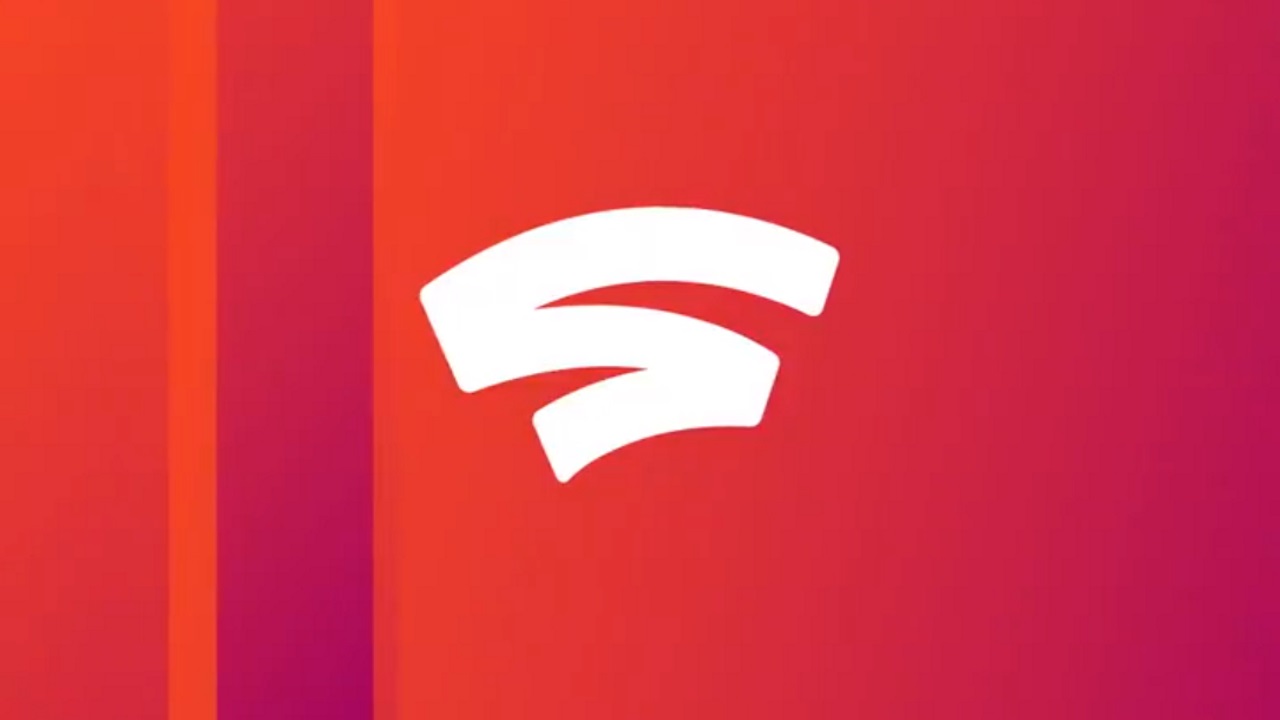
Google has a bold pitch for the future of the video game industry. With Google Stadia, the company has dared us to stick our heads in the Cloud and imagine a world where the latest and greatest games are but the click of a link away. It's a future where current technology standards can't curtail the ambition of developers; a future in which passionate creators are free to create, experiment, and play with the freedom to push the boundaries of interactive entertainment beyond that which we conceive to be possible. If we are to believe Google, Stadia isn't our first glimpse into the next generation of gaming – it's something else entirely.
"Stadia is not a 'next generation' platform," Jack Buser, Google's Director for Games, tells me. "I like to say that Stadia is a new-generation platform. This is something completely different, something that the world has never seen before. It is tough to compare Stadia to any other service or console; this is a platform that is focused on the creative possibilities that the development community has always wanted to realise in the past but couldn't."
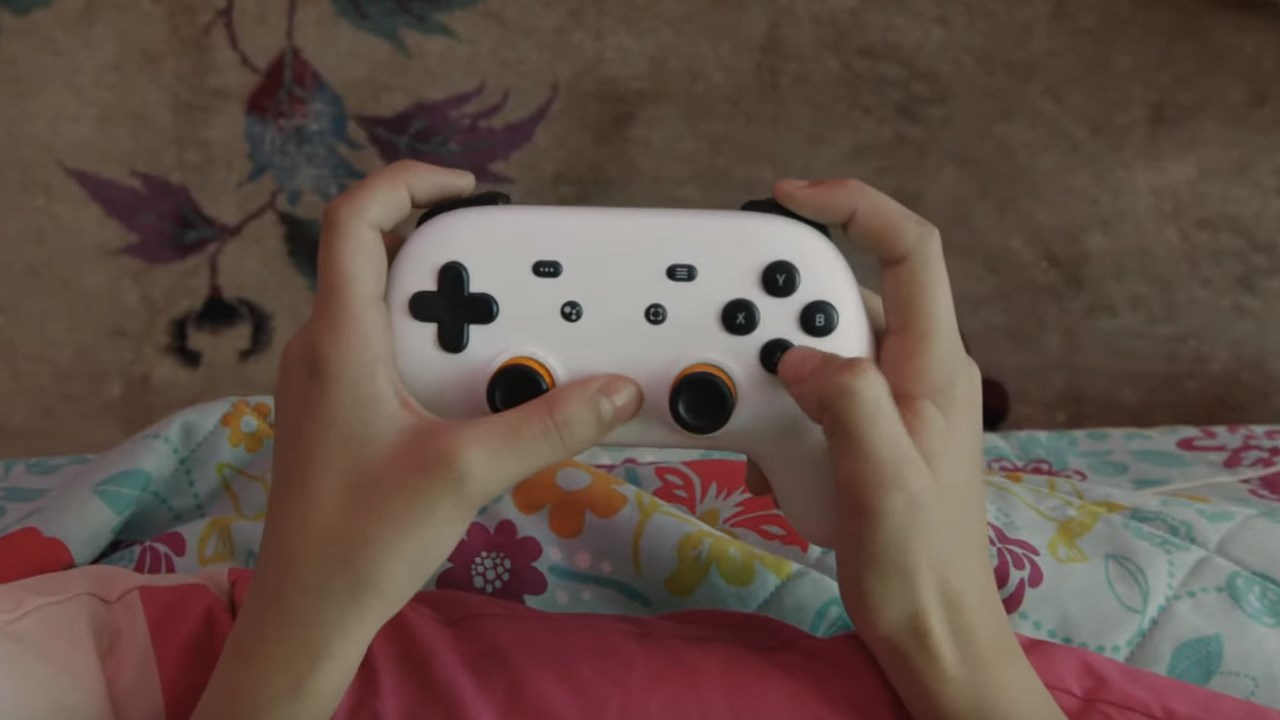
Want to know what it's like to play with the future of cloud gaming? Then you'll want to read our Google Stadia hands-on feature.
Stadia isn't, then, Google's attempt to enter the next generation race or face Microsoft and Sony head-on in the console business. Instead, the internet behemoth is pitching a platform that is designed to bring gamers together, with the Stadia service positioned as a place for like-minded players to gather. A space where we can all revel in the joy and drama that interactive entertainment can provide, albeit with none of the traditional barriers to entry getting in the way of our desire to play.
"What we are trying to do with Stadia is remove the barriers to triple-A games. Our mission is to bring the gaming experiences that we all love – Google is filled with gamers – to more people than ever before. We don't want these experiences to be locked behind expensive pieces of plastic. We want gaming to be set free. That's what motivates me to get up in the morning; we are going to break down these barriers and we are going to connect gamers with games like never before, and we're going to create experiences that have, for years now, been impossible. To me, that is just so incredibly motivating"
So, what is Google Stadia anyway?
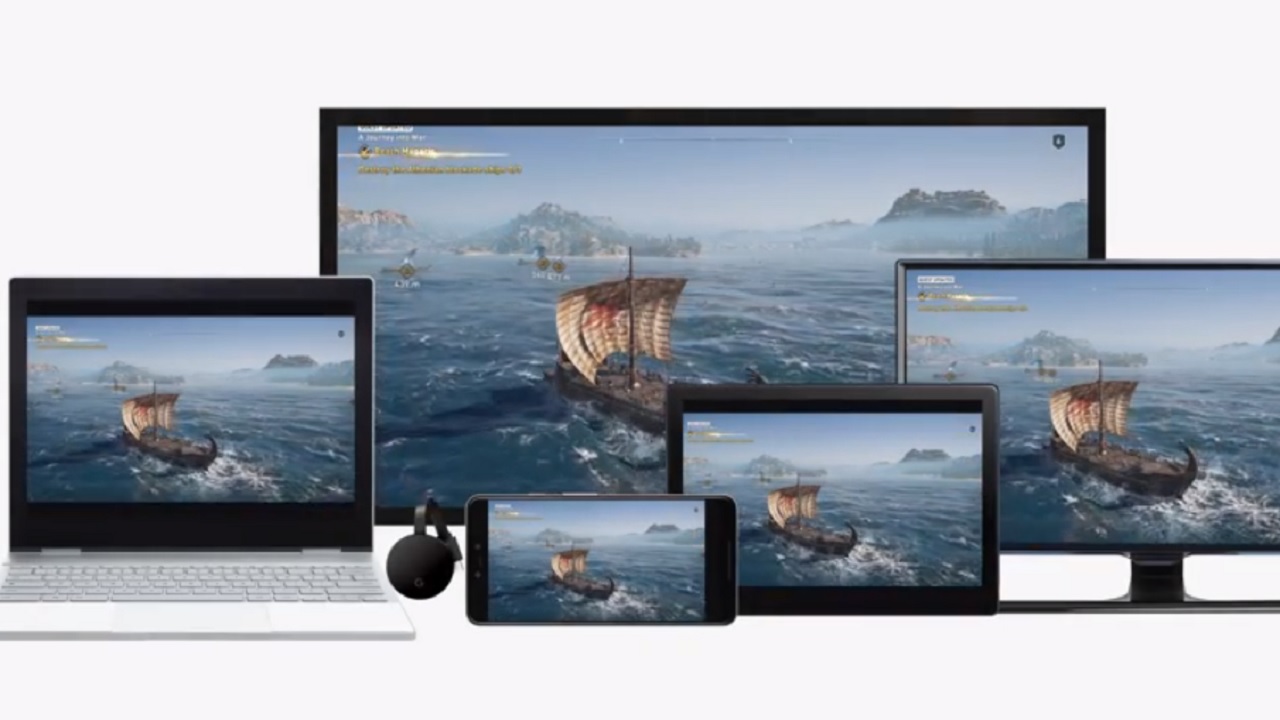
Google is positing that gaming should be for everybody. It should be immediately available and instantly enjoyable. No more patches. No more waiting for installs. No more lengthy-loading times, input lag, and multiplayer server issues. If you've got a stable internet connection, if you've got a working PC, laptop, Android or Chromecast device at the ready, then you should be able to play the biggest and best games without anything getting in the way.
Here's the working pitch: Imagine you are watching a gameplay demo for Doom Eternal on id Software's official YouTube channel. You like what you see and, let's be honest, why wouldn't you? It's brutal, boisterous, and bloody intense. You want to play it, and you want to play it right god damned now. But you can't. Instead you first need to leave the YouTube ecosystem and navigate through your preferred storefront of choice and locate the game – be it on Steam or the Epic Store, Xbox Live or the PlayStation Network – before then purchasing the game for $60 and waiting for it to download, install and then, invariably, patch.
This entire process is a pain in the ass. You know it, and I know it. It's a symptom of the gaming infrastructure that we, as a community of consumers, have allowed to standardise over the last decade and a half. Google is positioning Stadia as the antidote, letting you play what you want to play within five seconds of clicking a 'Play Now' button overlaid onto the YouTube video, thrusting you straight into the action. It's as simple as that – no downloads, no patches, no fucking around.
Weekly digests, tales from the communities you love, and more
"What we're trying to do with Stadia is we are trying to remove barriers to triple-A games," Buser tells me. "Our mission is to bring the experiences that we love to more people than ever before. We don't want these experiences locked behind expensive pieces of plastic, we want them to be set free."
Gaming is now the single largest form of entertainment in the world, with an estimated 2 billion people enjoying interactive entertainment across all platforms. Google wants to use Stadia to reduce the "friction", as the company calls it, between getting excited about a game and playing it. Part of this new experience means that you shouldn't need a PlayStation 4, Xbox One, Switch, or a powerful PC to enjoy the latest triple-A and independent releases.
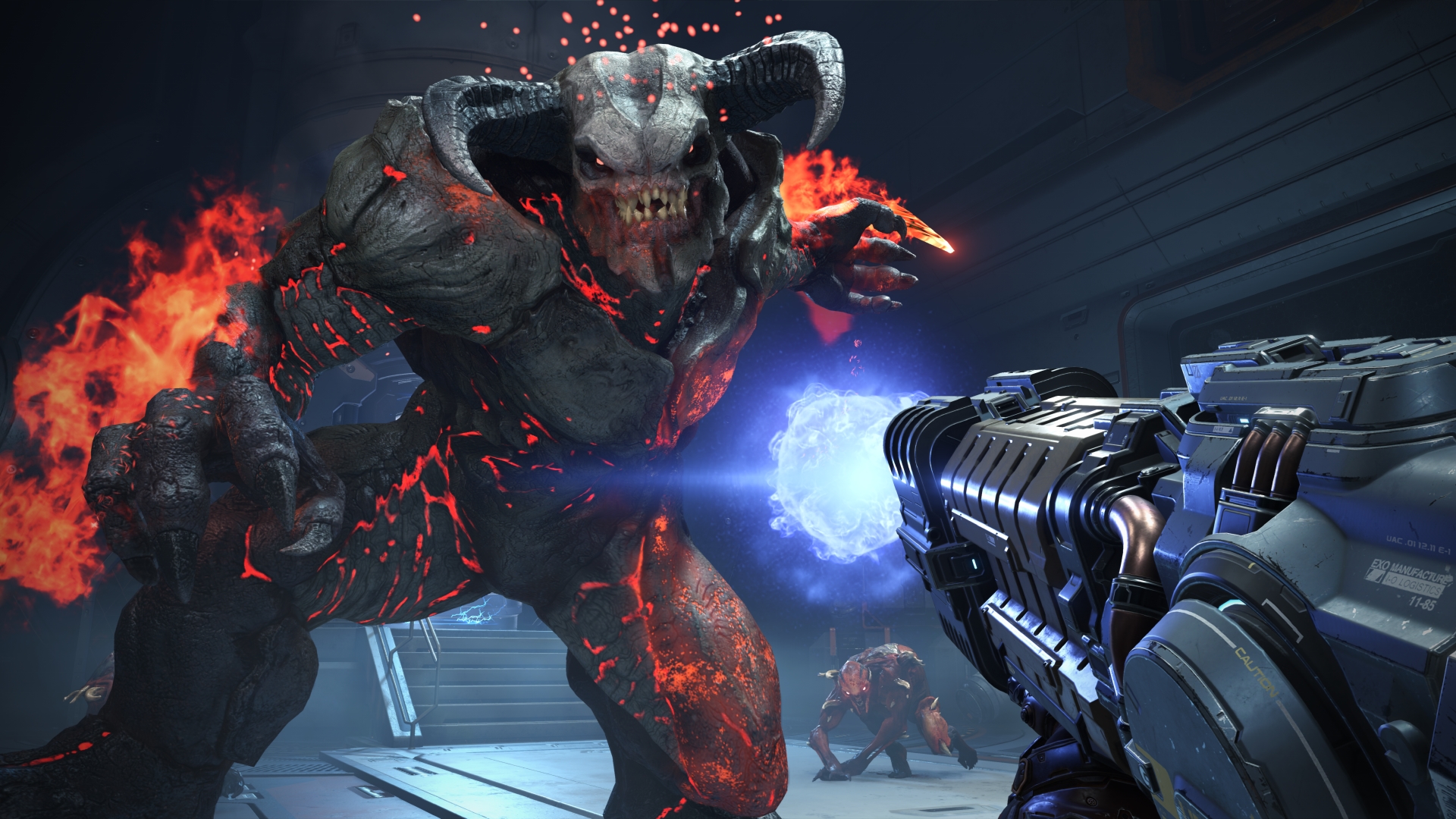
"If you're able to stream video – like YouTube and Netflix on your laptop – you're probably in pretty good shape"
Jack Buser, Director for Games at Google
Own a crappy old PC or laptop and have access to an internet connection running at a stable 25 Mbps? Then you should, in theory, be ready to play games at 1080p with locked 60 fps performance without any problems. It sounds as incredible as it does entirely implausible. I have a feeling that Buser could sense my scepticism from the second that I walked into the room with him. He worked hard to convince me that Google Stadia wasn't bullshit but was, in fact, something that will be a reality for players within the next 12 months.
"Okay, so, in a nutshell, if you're able to stream video – like YouTube and Netflix on your laptop – you're probably in pretty good shape. Remember, all the horsepower for Stadia is in the Cloud – it's the Cloud that is doing the heavy lifting. Your local device is just streaming… this is one of the big reasons why, during the [GDC 2019] keynote, we cracked a joke about testing [Stadia] on the least expensive PC we could find. We did that because you really can have that experience. You can dig out your old laptop, fire it up and start playing a high-resolution triple-A game on it. It doesn't feel real at first but, trust me, it's real and it just works!"
We don't even need to simply take Buser at his word on this one, because Stadia's tech has already been tested in the real world without any of us realising what it Google was up to, and the results were pretty positive across the board. "Last year, we did a test called Project Stream. We streamed Assassin's Creed Odyssey and we did it day-and-date with its release on console and PC to gamers all over the United States," Buser tells me with a broad smile. He's proud of Project Stream and so he should be: it worked. "We did this for two reasons," he continues, "reason one: we wanted to field test this technology; really battle test it, to make sure that we knew what was possible and what could actually manifest in reality, and we did it! The results are in and we are very, very happy, which is why we are here with Stadia."
The second reason, and the most important Buser tells me, is that this live-test shows the players that it works. "We know that gamers have had varying degrees of success with Cloud streaming in the past, and we wanted to just say, definitely, once and for all, that we've cracked the code and this can just work, okay? The response to it was incredible. You have people saying on social media, 'I was sitting in Starbucks with a three year old laptop and it felt like I was at home with my gaming rig!'"
On the matter of infrastructure
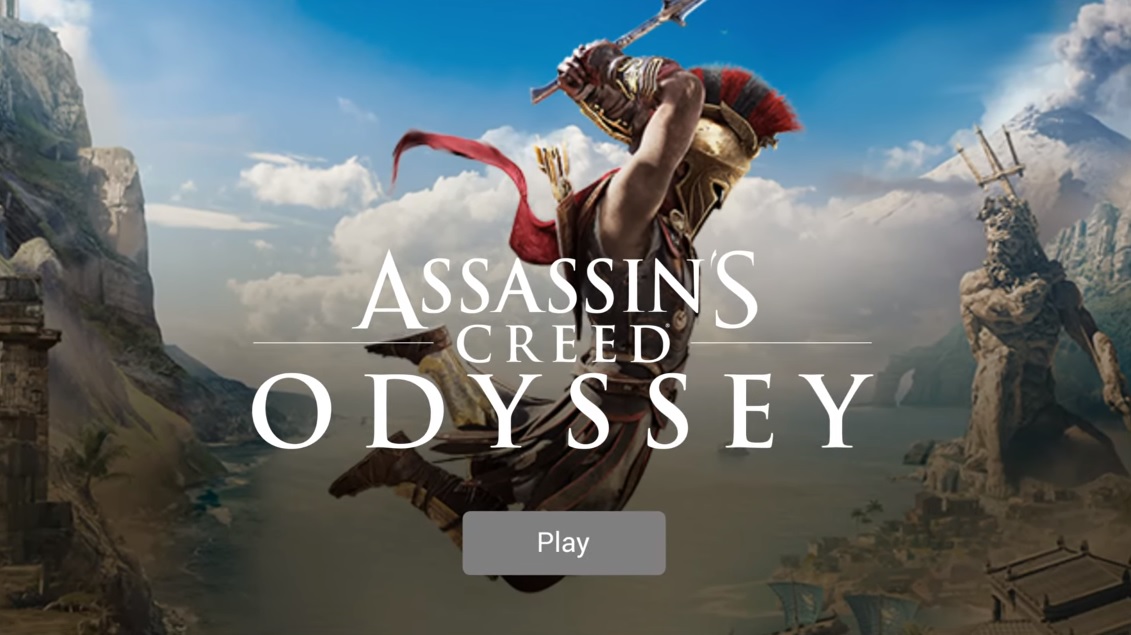
There is still a long way to go for Google here, but at a baseline it shows promise. Whether the wider infrastructure – Stadia's integration with YouTube and Google Assistant, for example – will be as solid as playing games streamed over the Cloud remains to be seen until we can road-test this thing ourselves when it launches later this year.
Still, say what you will about Stadia, but it's difficult to argue with the assertion that Google has already succeeded where Sony (with PlayStation Now), Microsoft (with Project X Cloud), and Apple (with Apple Arcade) have all previously failed. With Stadia, Cloud-based gaming feels accessible and truly exciting for the very first time, as if it is finally within reach – an inevitability, rather than an impossibility. Will it work in a home environment? That I can't tell you. Am I still super intrigued by the concept of it? Absolutely. Because Google is, in truth, better positioned that all of the competition to make this a reality.
When it comes to selling a sceptical public on the promise of Cloud-powered gaming, Stadia is by no means Buser's first brush with this particular manifestation of digital adversity. Before Buser became Director of Games at Google, he spent close to a decade at Sony.
He joined the company back in 2008 as Director of PlayStation Home, before transitioning into an oversight role over Sony's Digital Platforms and PlayStation Now – Sony's own flirtation with a game-streaming service that, despite failing to set the world on fire, has been quietly successful for the company. So why trust Buser – joined by an army of Google engineers and former president of Sony Computer Entertainment Worldwide Studios, Phil Harrison – when he says that Stadia will now succeed where so many others have failed in years past?
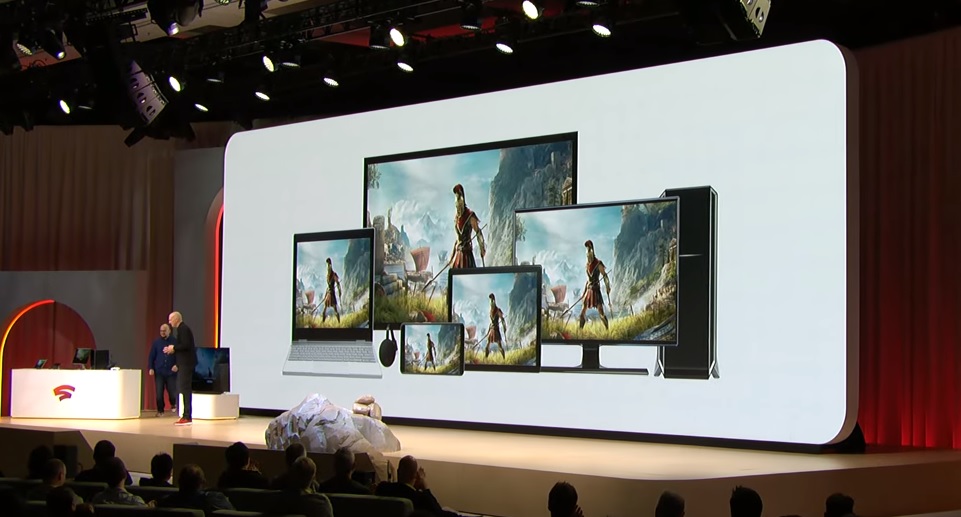
"We have built a truly flexible, scalable, and modern platform that allows us to push performance beyond what was previously considered possible"
Jack Buser, Director for Games at Google
Perhaps it's because Google already has the infrastructure in place to make cloud-based gaming a reality. "Stadia really is standing on the shoulders of giants. It is leveraging the best of Google to create a new kind of game platform that the world has never seen," Buser tells me as I question how the company can support something of this scale. "Stadia is built using the infrastructure that powers Google. So, in a way, Stadia and the stuff that makes Stadia what it is really is Google."
As a statement, I'm not sure that it makes a whole lot of sense, but I think I can see what he is getting at. Buser, by my understanding of it, is suggesting that we shouldn't think of Stadia as a standalone endeavour – as Sony might treat its console, television, film and music businesses as separate enterprises, for example. Instead, we should treat it as yet another wing of the ever-connected and intertwined Google family of products and services.
Buser maintains that Stadia has come about because Google has "a heck of a lot of gamers" in its workforce. "When we were thinking about our infrastructure, it only became natural for us to ask, "What if we ran a video game on this... what would happen?" And it immediately became apparent to us that, in the way that Google has set out on a mission to organise and make the world's information universally accessible and usable, as gamers we wanted to do that for games too. And by leveraging the best of Google, we knew we could do that; that's really what Stadia is."

That's all to say, then, that Stadia is "leveraging the infrastructure footprint that Google has made to power so many of our services," Buser tells me. "Google's infrastructure is something that truly boggles the mind. When I first started with Google, they give you a training, and they show you the infrastructure and the network that Google's built, and I honestly had no idea that something like that existed on planet Earth. And the fact that we're gonna run video games on that… yes please."
Yes please indeed. Buser isn't lying here, Google's infrastructure is freaking ridiculous. It actually has multiple Cloud networks in place already that have been used to support gaming initiatives for years. One – cleverly titled Google Cloud – is primarily being used to help bring down latency times on a suite of upcoming mobile game platforms and experiences, although it was more recently used by Ubisoft to host The Division 2 in the Cloud and support the developer's real-time triple-A gaming endeavours.
Back in 2018 Miles Ward – he's the director of Google Cloud's Solutions architecture – told me this of Google Cloud, and it had left an impression ever since: "Google has spent about $30.9 billion laying transatlantic and transpacific cables to build our own private network; that network is big. You may have heard of this other network, it's called the internet; well, our network is five times its size."
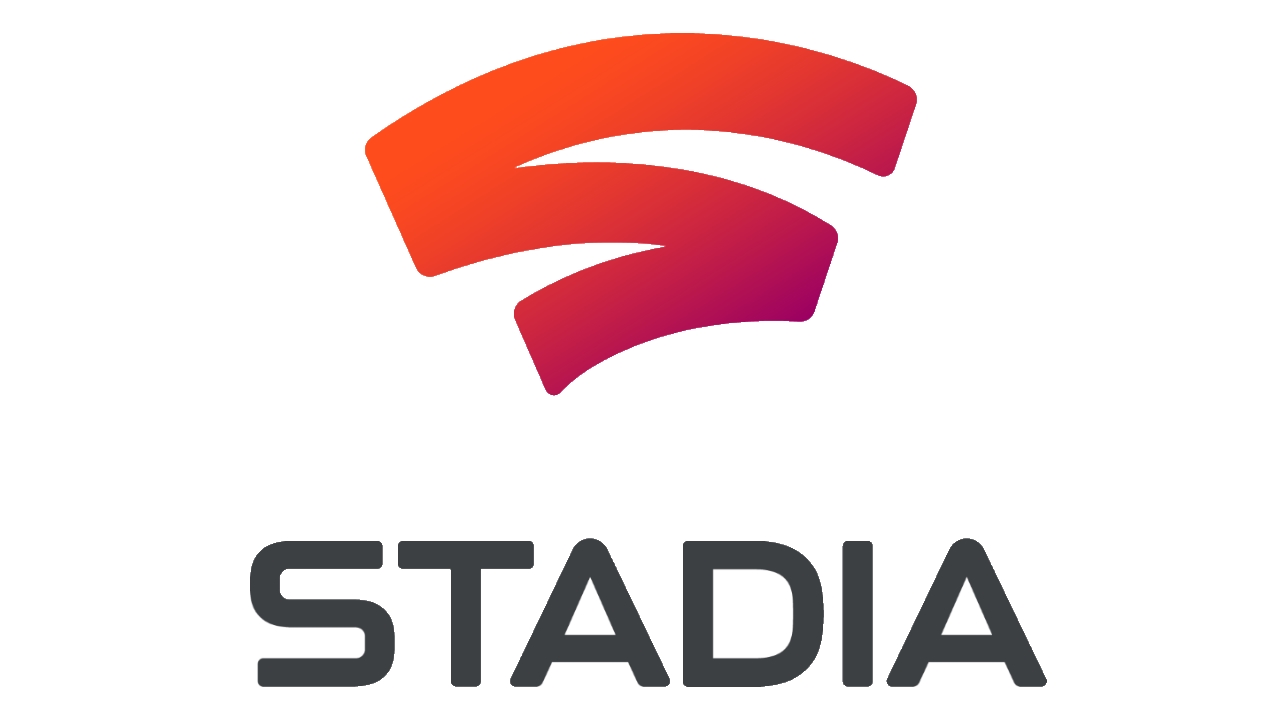
From the launch line-up to how Google will handle our data, these are our five biggest unanswered questions about Google Stadia.
Consider now that Stadia is utilising a network that towers over Google Cloud, engineering it specifically to support streaming games from the Cloud while minimising lag and tearing down barriers to play. The platform Ward mentioned above reportedly encompasses 70 points of presence across 33 countries.
For Stadia, Google is utilising custom server hardware and data centres, building off of its Data Centre Network – that's the thing that lets you get instantaneous results from the likes of Google's search engine and Google Maps while you're out walking the real world with a smartphone in hand – which encompasses over 100 points of presence across over 200 countries and territories, connected by hundreds of thousands of miles of fibre optic cabling, all bolstered by 7,500 Edge Node locations.
The wild potential
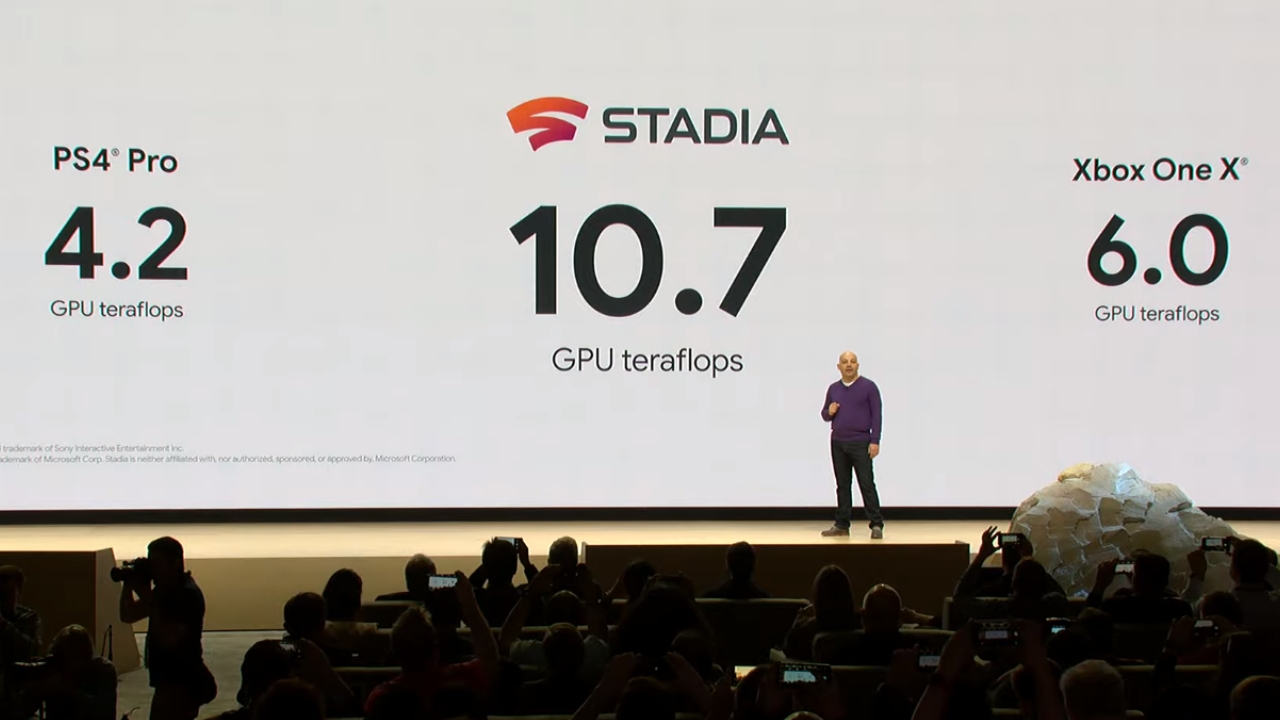
Google is presenting Stadia as the most powerful and connecting gaming platform ever made. With Sony's PS5 and Microsoft's Xbox Project Scarlett next-gen ambitions yet to be adequately detailed, only time will tell whether this proves to be true. What Google is banking on here, the proverbial 'game changer' as it were, is that publishers will want to take advantage of "the entire internet becoming a storefront" and that players will appreciate the ease-of-accessibility this could well present. "A publisher can decide to make a game available via YouTube, via Twitter, via their own website," says Buser. "They will have the ability to use the entire Internet to connect games with gamers."
With Stadia, any link can become an access point for a game. Google wants to make it easier than ever before for you to find, discover, and play games wherever they are and easier than ever to share those experiences with your friends too. A link, be it to the Stadia store, a text message, Reddit, Twitter, or whatever it may be, can take you immediately into a game from whatever device you have to hand. "It takes a second to wrap your mind around the concept, but this is something totally new that the world hasn't seen before, and to me, that is just incredibly exciting," Buser continues. "Games are no longer locked to a single webpage or storefront if you will; It can be anywhere that the internet is."

What makes this astonishing is that Stadia isn't presenting some low-quality version of the biggest and best releases with this concept. Google is promising that Stadia will offer 10.7 teraflops of power, its servers powered by a custom AMD GPU. To put that in perspective, the PS4 Pro's GPU offers up 4.2 teraflops and the Xbox One X 6.0. Of course, accessing this bank of power largely depends on your internet connection; Stadia is recommending “approximately 25 Mbps” for 1080p resolution at 60 fps, but you'll be needing bandwidth of at least 30 Mbps to access 4K/120fps.

PS5 streaming: Sony confirms next-gen games "can be seamlessly enjoyed independent of time and place"
Then there's the question of how this could ravage allowances; watching Netflix in High Definition can typically rinse through 3GBs of data an hour, and you should expect that to double for 4K streams. How will that look when you're streaming games? That's an unknown; there are a lot of unknowns when it comes to Stadia. But then we get back to the promise and potential of it and it's hard not to get excited by it. There's so much power for developers to work with and that could mean a genuine revolution in gaming could be upon us. As Buser puts it, "Stadia is not constrained by the limitations of traditional console systems."
"We have built a truly flexible, scalable, and modern platform that allows us to push performance beyond what was previously considered possible," he says, teasing that where developers must traditionally tone down their ambition to meet current fixed-hardware standards, Stadia will effectively scale up to meet the ambition of game makers. It's this architecture that is providing the foundation for a new generation of gaming. We know that development kits are out with 100 developers – that Stadia has been designed to easily slot into development pipelines, meaning titles designed for PC, PS4, and Xbox One can be easily ported to Stadia. We also know that Jade Raymond is hard at work at work building exclusive first-party experiences that could change the way we think about, experience, and enjoy games.
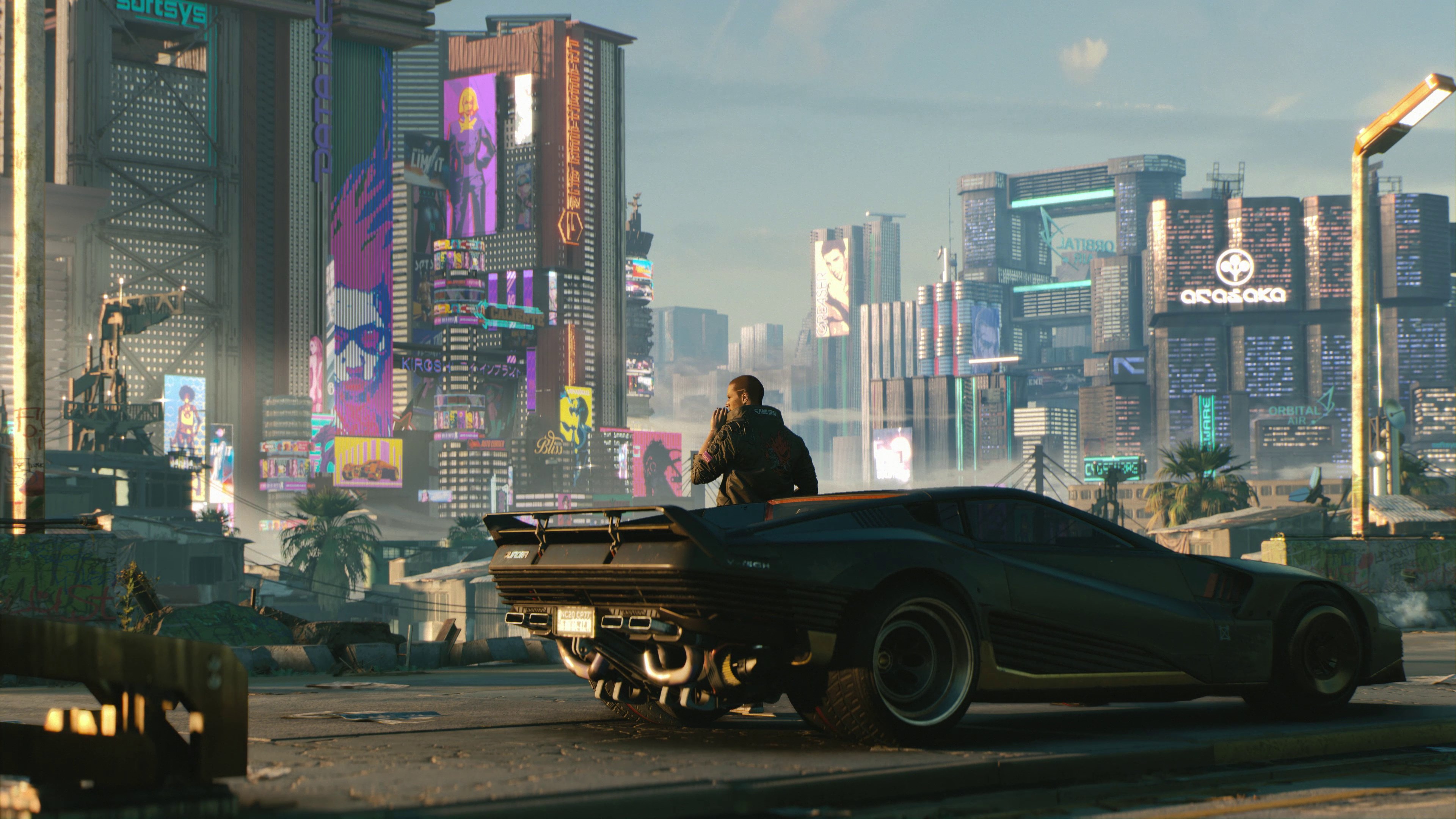
"Eventually you'll realise that, because Stadia just works on the devices that you already own and use anyway"
Jack Buser, Director for Games at Google
It's that last part that Buser wants us to get excited about. Stadia, at its heart, will not only deliver games that we have never ever seen before, but it will do without requiring any of us to purchase a new console, device or platform to actually experience them. "You will see games on Stadia that could not be built on traditional platforms and that's where things get really, really interesting."
"Because, when you begin to think about that you're kind of like, 'Okay, but what does that actually mean?' But eventually you'll realise that, because Stadia just works on the devices that you already own and use anyway, everybody already has everything they need to play these new games. Do you see what I'm saying?" asks Buser. I tilt my head in a way that suggested that I didn't. "I get it, it's kinda weird to think about because now we can say that even if there is a game that could only be possible on or because of Stadia, anybody could and can play it! You don't need to buy anything new, you've already got the device."
"Getting an [existing] game to run on Stadia can happen pretty quickly," says Buser, teasing the things that we will see down the line, "however, when developers realise the potential of the experiences that could be built on Stadia those creative juices start flowing... the possibilities are endless. I've seen stuff that literally would be impossible on a PC or a console. Literally would be impossible. These experiences could only be made possible because of Stadia, and to me, that is the most exciting part of this."
Find out what developers think about the future of gaming in the video below, or head over to our E3 2019 coverage hub to see more exciting announcements out of the gaming conference.

Josh West is the Editor-in-Chief of GamesRadar+. He has over 15 years experience in online and print journalism, and holds a BA (Hons) in Journalism and Feature Writing. Prior to starting his current position, Josh has served as GR+'s Features Editor and Deputy Editor of games™ magazine, and has freelanced for numerous publications including 3D Artist, Edge magazine, iCreate, Metal Hammer, Play, Retro Gamer, and SFX. Additionally, he has appeared on the BBC and ITV to provide expert comment, written for Scholastic books, edited a book for Hachette, and worked as the Assistant Producer of the Future Games Show. In his spare time, Josh likes to play bass guitar and video games. Years ago, he was in a few movies and TV shows that you've definitely seen but will never be able to spot him in.
